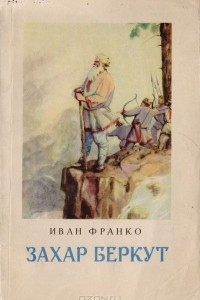- Главная
- yuriiyatsyna-1188493

пользователь не рассказал о себе
Нет курируемых объектов
Читаемые авторы
Robert A. Heinlein's "Stranger in a Strange Land" is a landmark work in science fiction, celebrated for its bold exploration of cultural relativism, free love, and human potential. Published in 1961, the novel tells the story of Valentine Michael Smith, a human raised by Martians who returns to Earth and challenges contemporary societal norms.
A unique aspect of the book is its deep philosophical inquiry into what it means to be human. Heinlein uses Smith's Martian perspective to scrutinize Earthly customs, religion, and government, revealing their arbitrariness and flaws. The protagonist's ability to perform seemingly miraculous feats, stemming from Martian mental disciplines, underscores themes of expanded consciousness and human evolution.
"Stranger in a Strange Land" also broke ground with its exploration of sexual freedom and communal living, themes that resonated deeply during the 1960s counterculture movement. Heinlein's portrayal of the Church of All Worlds, founded by Smith, reflects a radical vision of spirituality and social organization that defied conventional norms.
The novel's linguistic innovation, particularly the introduction of the word "grok," which means to understand something deeply and intuitively, has left a lasting impact on popular culture and language. Heinlein's blend of speculative fiction with incisive social commentary ensures that "Stranger in a Strange Land" remains a unique and influential work, challenging readers to reconsider their assumptions about society, identity, and human potential.
George Orwell's "1984" stands out as a seminal work in dystopian literature due to its profound exploration of totalitarianism, surveillance, and mind control. Published in 1949, the novel envisions a future where the world is governed by omnipresent, oppressive regimes. Orwell's portrayal of the Party's absolute power over truth and individual thought through mechanisms like Newspeak and doublethink remains unparalleled.
A key unique feature of "1984" is its detailed depiction of a society under constant surveillance, epitomized by the ubiquitous figure of Big Brother. This not only anticipated modern concerns about privacy and state surveillance but also coined phrases that have become embedded in contemporary discourse. The novel's exploration of psychological manipulation, where the truth is whatever the Party decrees, and personal memories are controlled, was innovative and disturbing.
Moreover, Orwell's narrative technique, blending a bleak setting with the internal struggles of protagonist Winston Smith, offers a deeply human perspective on the impact of repressive regimes. The book’s unique lexicon, including terms like "thoughtcrime" and "Room 101," provides a chilling vocabulary to describe the dehumanization and control exercised by authoritarian states.
"1984" remains unique in its prescient insights into the mechanisms of power and its cautionary tale about the fragility of freedom and individuality, making it a timeless and thought-provoking work.


















